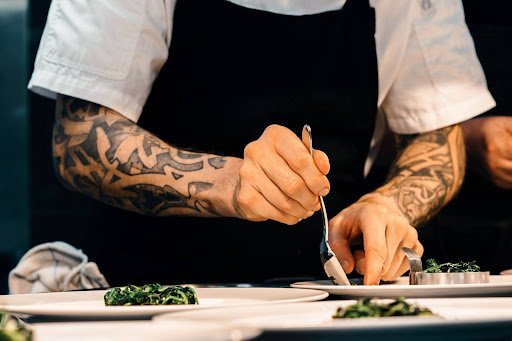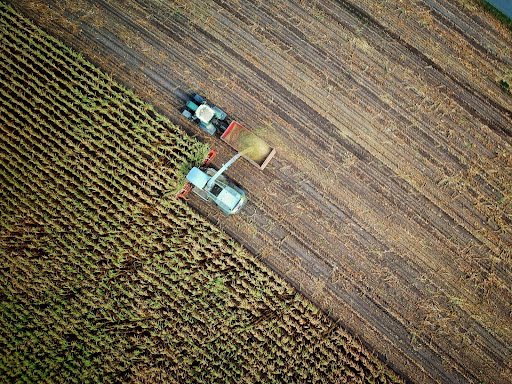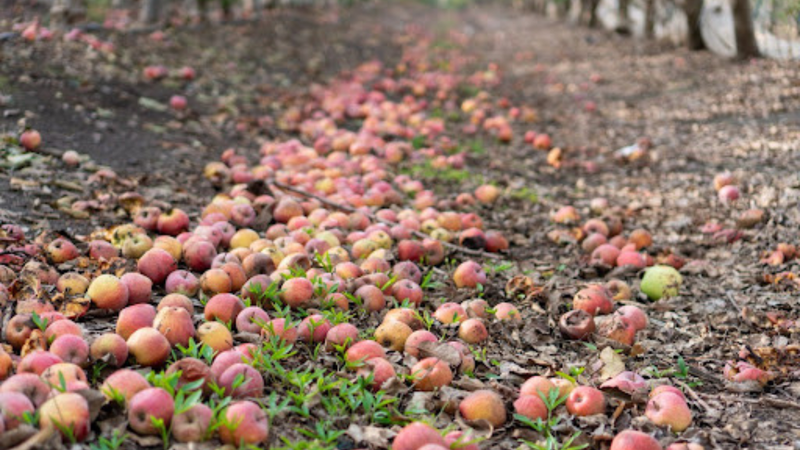Can climate tech help us waste less food?
Photo by Tal Surasky on Unsplash
Food loss and waste is a problem of huge magnitude
Among the systems that must transform to create a sustainable future, food is especially in need of urgent change. Incredibly, a third of food produced is wasted or lost globally, while food loss and waste account for 38% of total energy usage in the global food system. Meanwhile, 9.2% of the world’s population was in a state of chronic hunger in 2022. Few would disagree that this must be addressed, and quickly: 78% in the UK agree that brands should ‘implement sustainable sourcing practices to reduce food waste’. More than six in ten said they themselves have often taken direct actions like reducing food waste or supporting food banks. Despite such high awareness and support for addressing food waste, it remains a problem of huge magnitude.
Food system transformation is finally on the agenda at COP28
The food system has received surprisingly little focus at the globe’s most noteworthy climate conference. The United Nations climate talks, known as COP, have so far had little to say about how we feed ourselves. This is remarkable, since one third of all human-made greenhouse gas emissions come from agri-food systems. Addressing climate change will be impossible without radical changes to how we produce, package, transport and consume food. Beyond its contribution to climate change, the food system is responsible for much biodiversity loss and water usage.
This year, COP28 will finally address the need to reform the food system. The host nation, the United Arab Emirates, is preparing an Emirates Declaration on Resilient Food Systems, Sustainable Agriculture and Climate Action. This declaration will attract scrutiny: on October 30th, an open letter from organisations including the WWF, the Global Alliance for the Future of Food (GAFF), and the Food and Land Use Coalition (FOLU) urged the Conference to look beyond the climate contribution of food production. Food production is an important contributor to climate impacts, but it is just one component of a system that has multiple climate impacts. COP must consider the interlinked aspects of the full food value chain, from farm to fork. Promoting sustainable diets should be part of any declaration emerging from COP. So should measures to reduce food loss and waste.
Could climate tech provide the solution?
Climate tech could help to tackle the stubborn problem of food waste. Climate tech is technology developed to avoid greenhouse gas emissions or address the impacts of global warming. These technologies have attracted billions in investment since they emerged around a decade ago. PwC report that while inflation, high-interest rates and geopolitical factors have deterred investors in 2023, climate tech has proven more resilient than other private markets. The food sector has spawned hundreds of climate tech start-ups, with technologies developed for everything from more efficient nutrient use on farms to cutting food waste. So, who are the companies making a difference?
Three food waste tech companies to watch
Three companies that stand out are Winnow, Too Good To Go and Divert. All three operate at the intersection of cost-saving and environmental impact. This allows them to avoid the difficulties often facing climate tech - reliance on additional capital and longer timelines than comparable non-climate companies.
1. Winnow - reducing food waste in the catering industry

Photo by Sebastian Coman Photography on Unsplash
Winnow, a global AI leader in commercial food waste solutions, is aimed at the catering industry.
Problem - Up to 15% of food in the catering sector goes to waste - at huge financial cost. It’s tough for restaurant owners and chefs to minimise waste, as there is little visibility on which foods are wasted.
Solution - Winnow makes waste visible, measurable and addressable. AI-enabled food waste tracking pinpoints which foods are wasted. A weighing scale beneath the kitchen bin and an image-capture camera together measure the type and volume of food thrown away. Software translates this into a suite of actionable reports, supported by training for staff. Crucially, the system can be implemented without the need for operational changes in kitchens.
Results - Winnow has been adopted by major businesses including Ikea and Hilton. The company states it has saved 36 million meals and avoided 61,000 tonnes of CO2 emissions annually.
Winnow reached Series C funding in June 2023, indicating it has progressed well into scale-up territory, and is likely ready to enter further markets and launch further products.
What next? By offering both cost-saving and environmental benefits, Winnow has grown rapidly. If the company could link its data to catering business’s ordering systems, this could further close the loop on food waste. Since much food waste occurs in the home, a domestic version of the product could appeal to consumers keen to cut waste and food bills.
2. Too Good To Go - redirecting surplus in food service and retail

Photo by Nik on Unsplash
Too Good To Go matches people with food left over at the end of the trading day, allowing consumers to ‘save the planet at closing time’.
Problem - Retailers and restaurants want to avoid ending the day with surplus food, but eliminating waste completely is impossible.
Solution - Too Good To Go redistributes food that would otherwise go to waste through an app, enabling consumers to pick up surprise bags of leftover food nearby. The company has partnerships with brands including Greggs and Starbucks. Consumers enjoy food at a third of its usual price, while partners turn surplus food into extra income with minimal effort.
Results - Too Good To Go scores an enviable 4.9 stars out of 5 in Apple’s store, based on >350,000 reviews, showing that consumers strongly appreciate the service. The company is now profitable and turns over 102 million Є annually.
Since 2016, Too Good To Go reports that it’s saved almost 200 million meals, equivalent to avoiding the CO2e emissions from flying 100,000 passengers around the world.
Where next? Partnerships with cities, as well as food retailers, could be a way for Too Good To Go to grow and prevent even more waste.
3. Divert - waste solutions along the entire food value chain

Photo by no one cares on Unsplash
Divert describes itself as ‘protecting food as the valuable resource that it is’.
Problem - Food can be wasted at many points in the value chain: in an agricultural setting, where food goes bad before harvest, and in retail or catering where excess food ends up in landfills.
Solution - Divert provides distinct solutions for different stages of the food life cycle. When it comes to dealing with waste, the company provides reverse logistics to collect excess food. This can then be donated, or if inedible converted into a slurry which is ultimately turned into electricity.
Recognising that waste prevention is better than cure, Divert uses its Radio-Frequency Identification tracking platform to track store-specific wasted food data, enabling stores to order less of the foods that are destined for waste.
Results - It was reported in March 2023 that Divert had received over $1 billion in combined financing, made up of equity funding and structured project finance - among the largest sums raised in the food-waste space. Clearly, Divert commands a high degree of confidence among investors.
The company states it has donated 10 million meals to the food insecure and cut greenhouse emissions by processing 2.3 billion pounds of wasted food.
The future of climate tech and food waste
Winnow, Too Good to Go and Divert have each significantly reduced food waste. All three companies are expected to grow and continue to innovate their products to cover more points along the food value chain.
Climate tech is crucial to addressing food waste and loss, but it can only provide part of the solution. An enabling policy environment is critical. Existing best practices show what can be achieved: In South Korea sending food to landfill has been banned for years, slashing rates of waste. The city of Milan won an Earthshot Prize for its programme of food redistribution with the target of halving food waste by 2030. A good outcome at COP28 would be a resolution addressing the food system holistically, with meaningful commitments covering food waste, consumption, biodiversity loss and land use change related to food production. Achieving a food system that is less wasteful and fit for the future could depend on it.
Other notable companies contributing to reducing food waste: Hello Fresh, Gander and Tesco.
About the author
Jennifer Greggs is an On Purpose Fellow and member of the October 2022 cohort.
Her mission is to serve the planet and humanity by using her skills in analysis, strategy and communication to help solve the climate emergency and restore nature.

